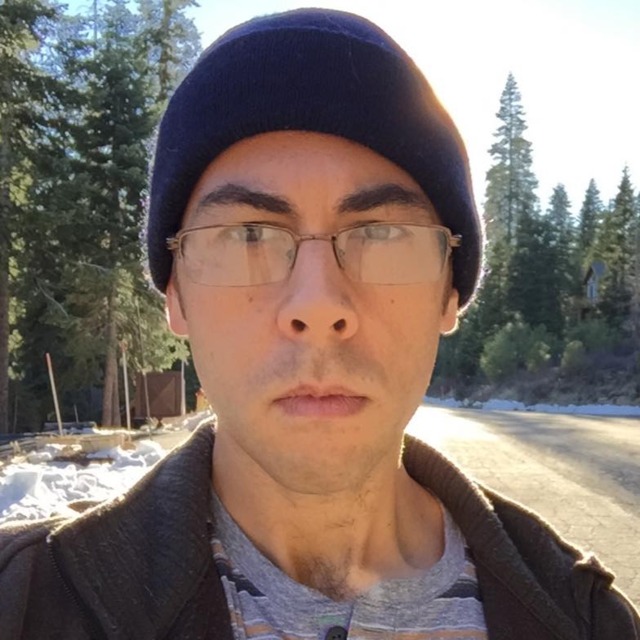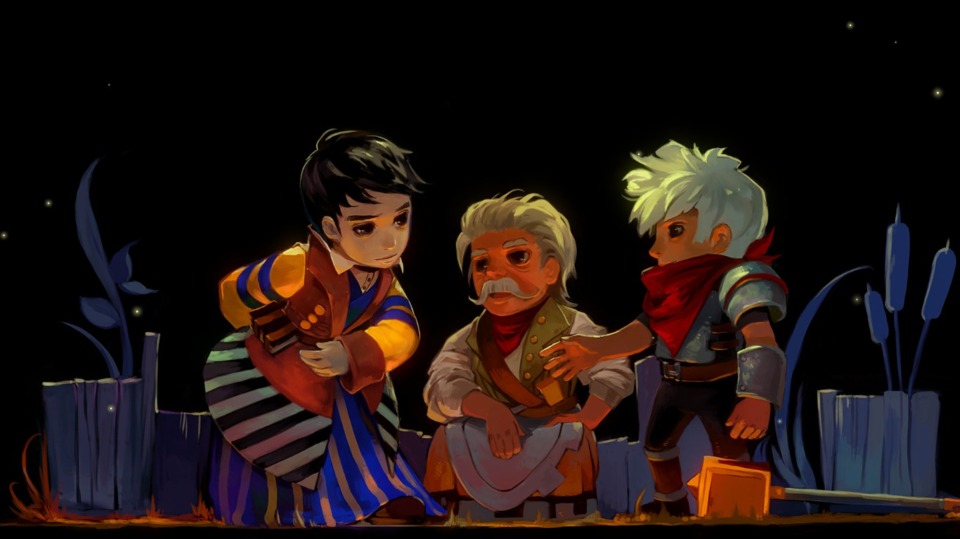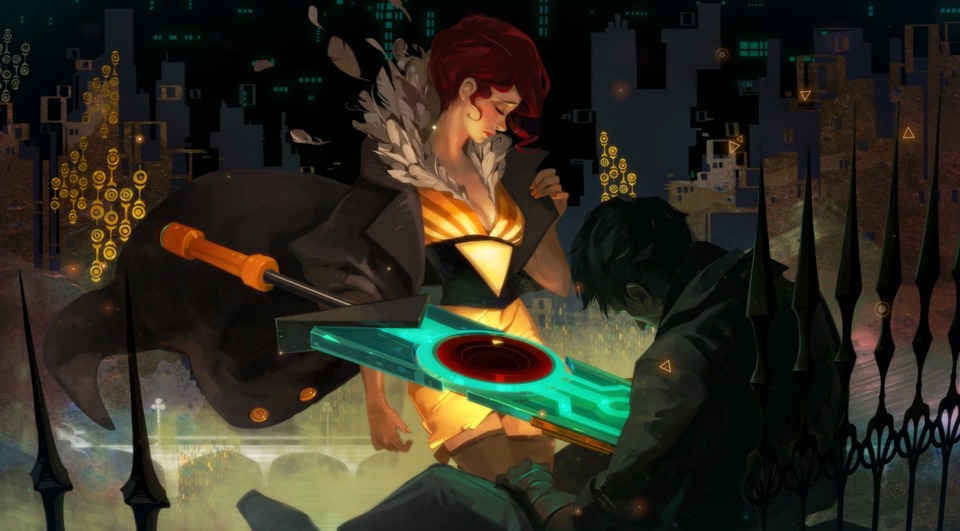
Recently somebody asked me what I'd do instead if I had never gotten into games. I thought about it for a little while then told him more or less that I had no idea.
This is maybe a too-narrow point of view for someone whose job title is 'Creative Director' of an independent game studio. I ought to be a more-worldly sort of guy, flashier, more fun. But games have been the single constant in my life, from my earliest memories. Other than that I like to write, and I like to work. Along with massive strokes of luck from time to time, this straightforward combination provided me the basis for a career in games that's soldiered on now for two decades long as of this year.
I spent the first half of my career working on websites like Gamespot, which was designed to drop knowledge about games in an entertaining way. I did a lot of things there, but foremost in my own sense of identity (and probably in your own sense of me if you knew me from my work) was that I was a critic. I wanted to understand what made games work and report back on my findings.
I did that for a while. Since I started as a part time intern and ended up years later as editor-in-chief, I saw things from a lot of different angles. We navigated lots of changing times. That some of my former colleagues from back then are still at it after all this time is astonishing to me like you have no idea, the talent and determination of these guys.
I left GameSpot nine years ago, almost to the day, to pursue a lifelong dream I had to work on games, to make them. It was a big change, the first of several more. My career changes put my family life and finances in some amount of jeopardy. It was very selfish in a way. Knowing that full well I still went through with it at every turn. I only wanted to turn back once in a while. My wife Jenna must have known what it meant to me as she put up with it.
My first job in game development was as a producer on the Command & Conquer games at Electronic Arts. The short story is one day, a friend and former GameSpot colleague named Amer Ajami (who'd been working at EA for some time) let me know his team had a producer opening. Being aware of my interests in development and having come from a similar editorial background, Amer wondered if maybe I was interested, and I'm sure I told him yes with little hesitation. I loved my job at GameSpot, but as I was getting close to age 30 yet feeling no closer to even having tried development, I was getting very restless. I could always come crawling back to writing about games, I thought.
Anyway, I got the job. Started commuting from San Francisco to Los Angeles. I thought my wife and daughter, who was 2, would move down at some point but one thing led to another and I just kept commuting. I'd see them every other weekend, then my dad would drive me to the airport at 5:30 in the morning Mondays. I'd be among the first to get to work. This was such a shameful arrangement I told almost no one. You must think I'm boasting now.
I came in on the tail end of Command & Conquer 3: Tiberium Wars, which GameSpot generously awarded a 9.0 at the time of its launch. The game was put together by an extraordinary team that had been belting out hit after hit, year after year, from the days of Command & Conquer Generals on through the Battle for Middle-earth games and then C&C3. Subsequently, Red Alert 3 was the first game I worked on start to finish. For my part I just wanted to get in there and make myself useful without getting underfoot. I ended up getting involved with tons of stuff I really cared about, some of the little details I loved about those games, from writing voice responses for the units, to designing campaign missions, to making a tutorial worth a damn, to putting together the instruction manual. You have no idea how grateful I feel that I got to work on a couple of printed manuals for games. Red Alert 3 was a challenging and exciting project, and a great experience on the whole.

I met some good friends while I was at EA. A couple of them left around the same time I did back in 2009, when our team had started to disperse for a variety reasons I wrote down here then deleted. Two of these friends of mine, Amir and Gavin, formed a small then-nameless studio, which later they called Supergiant when they realized they had to call themselves something on the title screen of their game, our game, Bastion. But while they were getting started, I was getting started at my own new job at 2K Games, as a producer. Same title as EA, totally different job, totally different organization.
2K was such a breath of fresh air in so many ways. I thought the studio was just fearless. If a game needed more time, the studio was prepared to bend over backwards to make that happen from the top down. It wasn't business by the numbers. The game I worked on was called Spec Ops: The Line. It was in development for years before I joined and still wasn't done when I left. But boy was it something in the end. Spec Ops: The Line rightfully enjoys a sort of cult following to this day and I think it's one of those games that had a very high chance of leaving a permanent mark on whoever took the time to play it through. Anyway while I was at 2K, I was in the middle of this big project coordinating between a publisher based in Marin County and a developer based in Berlin. Traveling to Berlin from time to time seemed like an upgrade from commuting to LA, and my life regained a relative bit of normalcy.
I guess that normalcy made me uncomfortable, and it was right around a year into that job just days after my son was born that I resigned from 2K to reunite with my former EA colleagues who were busy getting Bastion built and Supergiant off the ground. For the first time since I was a teenager I was mooching off my parents just to make ends meet, since we were self-funding the project. I'd drive 90 minutes to San Jose to the house where Supergiant was based, usually to spend a night or two hunkered down with the team, or work from home some days.
It couldn't have been more different from 2K, or EA, or GameSpot. Man, it was great. Hell, I'm still there, still doing this stuff, it's been great. It reminded me of getting started to begin with, making fanzines with my friends or throwing together web sites in my parents' basement. We worked and worked.
Bastion was our one shot. I felt like it was my one shot. I grew up playing everything. People ask me what's my all-time favorite game I tell them Ultima V and Street Fighter II. Those games couldn't be more different from each other but each in their own right, they're these worlds. I wanted to make these great big little self-contained gameworlds like those. And Bastion was really the first time I had a chance to be a part of something like that, to create characters and stories, build levels, script encounters. See ideas go from just ideas to becoming real things, which players could then interact with and experience, and with any luck extract from them those kinds of little moments that we remember from our favorite games. Games that spark your imagination like the games you played as a kid. That idea resonated a lot with me and all of us. I'll always feel indebted to my friends and colleagues for believing that I had it in me to do this kind of work, because there's just no way anybody else was going to let me do that job, if not them.
People ask me how to get started making games. For me it took me 30 years to get my shot. So don't ask me.

We got another chance at bat after Bastion's success. One of the best parts of making that game was just making everything up, everything. Here's this world, here are these characters. These are the parameters, the internal rules. Based on impressions of things but not on anything really. The conventions that it uses are just there to set up little twists. I loved that. We figured let's do that again. How about a sci-fi love story this time? Cyberpunk-y sort of vibe. Yeah, let's do it.
Transistor was difficult for me. I was naïve in thinking some things would be easier the second time. At GameSpot when we had a month or two to plan ahead it was a big deal. Eighteen months on Red Alert 3 felt at first almost indulgent. So working for 2-and-a-half years on something was a new experience for me. With the investment-of-time came more anxiety in some respects, and at some point the late nights must have added up. The game's been out close to two years now and I still think about it all the time. Some people say they like it more than Bastion and I feel vindicated every time I see it, then feel foolish. These games are not in competition. They're both a part of who I am, and what I've come to understand.
Sometimes I miss writing about games, as much as I love writing for them. This opportunity to write to you again meant more than you might guess. But now, unlike nine years ago, I realized I didn't know what to write. I didn't want to write about myself like this and tried not to. I wanted to tell you about my favorite Hearthstone streamers and next time maybe I will. But thanks for bearing with me just this once. Besides, I realized something: whether I'm writing about games or writing about myself, it isn't any different.
Until next time,
Greg
Greg Kasavin is a writer and designer at Supergiant Games, the small independent studio behind Transistor and Bastion. Prior to joining Supergiant, Greg worked at 2K Games, Electronic Arts, and GameSpot. He's @kasavin on Twitter.